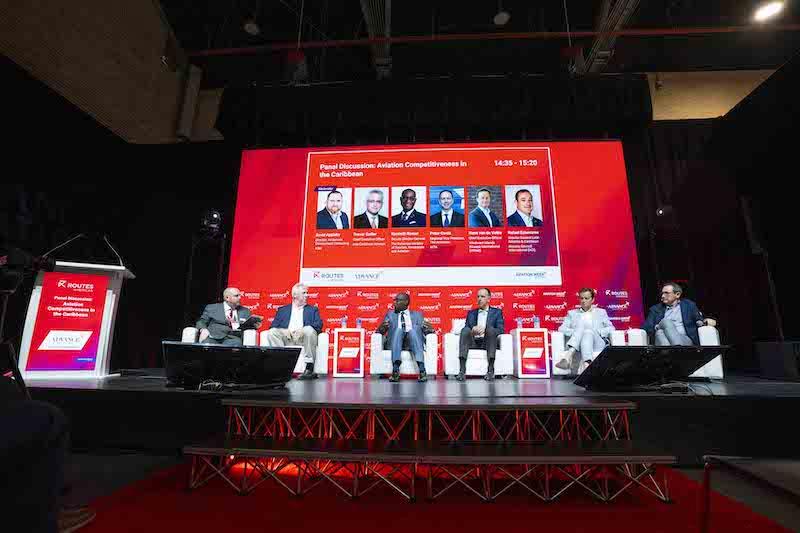
Panelists at Routes Americas 2024 in Bogotá.
Credit: Ocean Driven Media
BOGOTA—In a discussion on aviation competitiveness in the Caribbean, focus of a panel began with one issue: taxation. In an example provided by Turks and Caicos-based InterCaribbean Airways, in transiting between two unnamed Caribbean countries via another, taxes can amount to greater than $300. “If...
Subscription Required
This content requires a subscription to one of the Aviation Week Intelligence Network (AWIN) bundles.
Schedule a demo today to find out how you can access this content and similar content related to your area of the global aviation industry.
Already an AWIN subscriber? Login
Did you know? Aviation Week has won top honors multiple times in the Jesse H. Neal National Business Journalism Awards, the business-to-business media equivalent of the Pulitzer Prizes.





